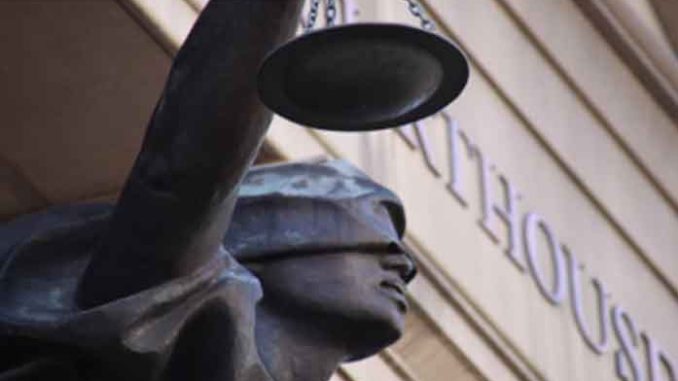
A judge questioned Tuesday whether it’s his place to get involved now in how Maricopa County Recorder Adrian Fontes performs his job during the upcoming election, or if he should wait until someone actually complains after the election about last minute changes allowing for voting via FaceTime calls.
Earlier this month the Arizona Attorney General’s Office (AGO) learned Fontes included a video call voting process in Maricopa County’s early voting plan. Then another county recorder reached out to the AGO with concerns about a similar statewide virtual voting procedure Secretary of State Katie Hobbs was promoting.
State law requires Hobbs to receive input from all 15 counties followed up approval from Gov. Doug Ducey and, Arizona Attorney General Mark Brnovich before issuing Arizona’s Elections Procedures Manual (EPM).
The most current approved EPM was issued in late 2019 and doesn’t include any Virtual Voting Procedures currently being championed by Fontes and Hobbs as a concession to COVID-19 public health concerns. Earlier in the week Gov. Ducey stated that the middle of an election cycle “isn’t the time to experiment” with election procedures.
Virtual voting options conflict with several state laws and therefore should not be implemented, according to an emergency motion for special action or injunctive relief filed by the AGO on Sept. 29. There is also no way to lawfully implement a statewide procedure before early voting begins Oct. 7, the AGO argues.
The AGO motion seeks a court order preventing Fontes and Hobbs “from unilaterally altering Arizona law on the eve of an election” via unvetted virtual voting.
“Neither Arizona law nor the EPM allows voters to vote using their own videoconferencing device,” the AGO argued. “Neither Arizona law nor the EPM allows a voter to cast a ballot by having a third party write ‘voter unable to sign due to COVID-19 rules’ on the ballot affidavit.”
Which is why Judge Randall Warner of the Maricopa County Superior Court and attorneys for Brnovich, Ducey, Fontes, and Hobbs took part in a Sept. 29 scheduling conference.
The parties agreed to take part in a hearing the morning of Oct. 5 to address the matter. Warner would issue his ruling by the end of the day, giving any of the parties time to ask the Arizona Supreme Court to weigh in before early ballots must be accepted two days later.
Warner set a deadline of 3 p.m. this Friday for all parties to file any motions or arguments for or against allowing virtual voting in the upcoming election. That will give him the weekend to read the documents so he is prepared for next Monday’s hearing.
The judge also advised the parties he will not hear from live witnesses in the courtroom. Instead, testimony will be taken by phone. One of those who intends to testify is Hobbs, according to an attorney with Coppersmith Brockelman PLC, the law firm retained by Hobbs’ office.
But Warner made it clear there were two key preliminary issues he must decide before he can rule on any of the parties’ claims.
One issue, he noted, is which elected official has what authority over any of the various election law disputes. For instance, Fontes as the elected county recorder has certain statutory authorities and responsibilities within Maricopa County, while Hobbs is the top elections official in the state.
Brnovich and Ducey also have statutory authorities, mainly with regard to the election procedures approved for use by each county.
The other issue Warner addressed Tuesday is his “concern” with whether it is appropriate for third parties to call on courts to preapprove -or disapprove- how an elected official intends to perform their duties. He instructed all of the parties to be prepared to address those concerns in addition to their issues with the Fontes-Hobbs plans for virtual voting.
The disagreement about utilizing virtual voting starting next week is not the first time Fontes has flexed his authority.
Last week the Arizona Supreme Court ordered him to refrain from instructing Maricopa County voters that the can “cross out” errors on their ballots which can slow down the tabulation process. Despite the justices’ order, Fontes has indicated he intends to continue giving the same advice.
